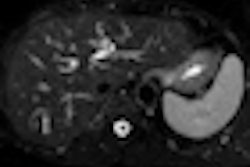A new colorectal cancer vaccine tested in combination with radiation therapy is showing promise, according to research published in the International Journal of Radiation Oncology, Biology, Physics.
The vaccine, used in mice with colorectal cancer, was most effective when tumors were irradiated first and then vaccinated a week later, researchers at Thomas Jefferson University concluded (Int J Radiat Oncol Biol Phys, April 1, 2014, Vol. 88:5, pp. 1188-1195).
When mice received either treatment alone, there was only a modest reduction in tumor size. However, when radiation was given first, the investigators saw a sixfold increase in cancer-fighting immune cells and complete remission of the majority of tumors.
"Prior to these experiments, we didn't appreciate the impact that sequencing of these treatments had on their combined ability to generate immune and clinical responses," said Dr. Matthew Witek, first author of the study. "Remarkably, immune activation and tumor regression only occurred when radiation was given prior to vaccination."
Although the work will need to be reproduced in humans to determine if the same holds true for cancer patients, the finding is exciting, said senior author Adam Snook, PhD, an instructor in the department of pharmacology and experimental therapeutics.
Molecular products developer Targeted Diagnostics and Therapeutics provided funding that supported the work; the firm has a license to commercialize inventions related to it.



















